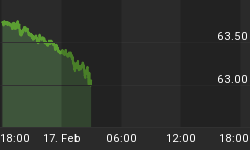"Treasurys extend slide on tepid auction, U.S. 7-year notes sold amid lukewarm reception" read the MarketWatch headline on Wednesday June 29. That's none to pleasing; that is, if you're the U.S. government. And the details of that $29 billion auction, as relayed by that same MarketWatch, were perhaps even less pleasing...
- Bidders offered to buy 2.62 times the amount of debt sold, compared with an average of 2.88 at the last four comparable auctions, suggesting less appetite for longer-term U.S. government paper by investors.
- Indirect bidders, a group that includes foreign central banks, purchased 32% of the auction, versus an average of 56% at the last four. Not a good sign given the fact that foreign central banks own close to 28% of the U.S. government's publicly held outstanding debt, and over the last twelve months have bought 34% of the net new issuance. Not a good sign given the fact that these very same central banks are getting increasingly concerned about their hometown inflation rates and perhaps less likely to be buying longer-term U.S. Treasuries at the levels the U.S. government might want. Indeed, according to MarketWatch, indirect bidders in this auction were the lowest since March 2009 and the second lowest ever for a 7-year note.
- And to top it all off, those 7-year notes were sold at a yield of 2.43% versus a yield of 2.36% prior to the auction.
As MarketWatch noted, at least some market participants found the results not unexpected given the lackluster outcomes of the two earlier Treasury auctions this same week.
More commentary available at: http://blogs.forbes.com/michaelpollaro/2011/06/30/does-the-latest-7-year-treasury-auction-suggest-buyers-wary-of-the-end-of-qe-ii
















